“Bootstrapping” students’ understanding of statistical inference
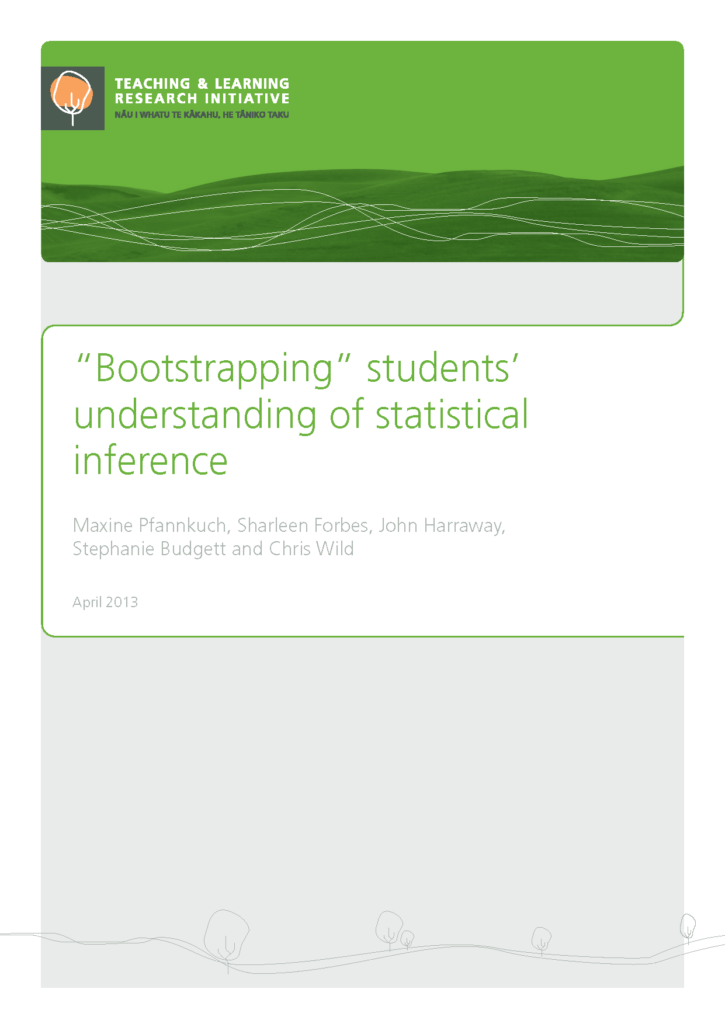
Introduction This report summarises the research activities and findings from the TLRI-funded project conducted in Year 13, introductory university and workplace classes, entitled “‘Bootstrapping’ Statistical Inferential Reasoning”. The project was a 2-year collaboration among three statisticians, two researchers, 16 Year 13 teachers, seven university lecturers, one workplace practitioner, three teacher professional development facilitators, and one […]
“Better to do than receive”: Learning to think historically through internally assessed course work
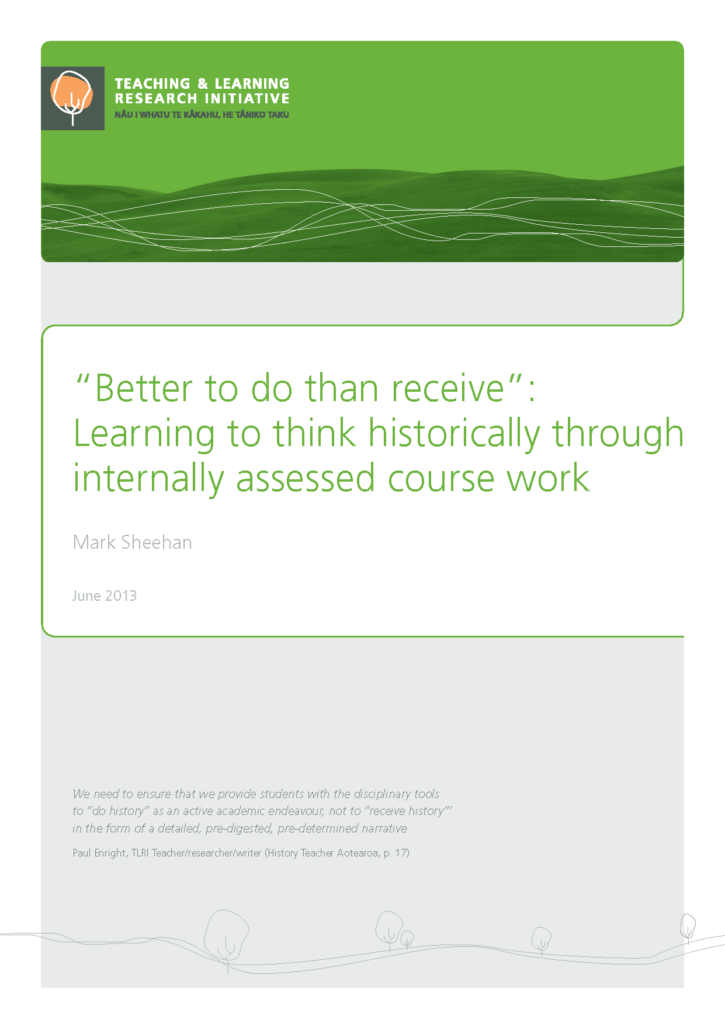
Introduction This research project examined the contribution internally assessed course work makes to motivating young people to think historically; that is to develop reasoned, evidence-based understandings of the past that equip them to participate in society as critical citizens who can think independently and adjudicate between competing claims of historical authenticity. Our findings indicate that […]
Inquiring minds, meaningful responses: Children’s interests, inquiries, and working theories
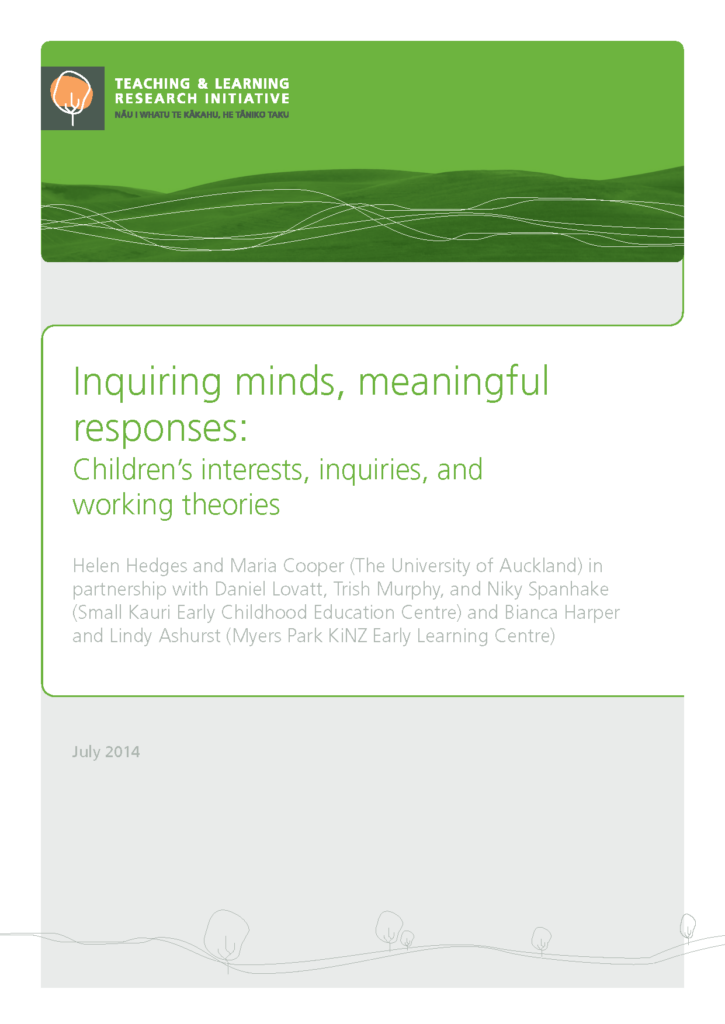
Introduction: Research rationale and aims In keeping with the spirit, aims, and principles of the Teaching and Learning research Initiative (TLRI) programme, the following whakataukī has guided our research project: Ma te mahi ka mohio, ma te mahi ka marama, ma te mahi ka matatau. Through practice comes knowledge, through knowledge comes understanding, through understanding […]
Pedagogical intersubjectivity: Teaching and learning conversations between children and teachers
Introduction This project builds on prior national TLRI research investigating teaching and learning episodes between teachers and child during their everyday interactions (Carr, et al., 2008; Davis & Peters, 2008). These prior studies indicated that teachers sometimes found it difficult to: choose which of the children’s interactions they should involve themselves in to develop opportunities […]
Mathematics: She’ll be write!
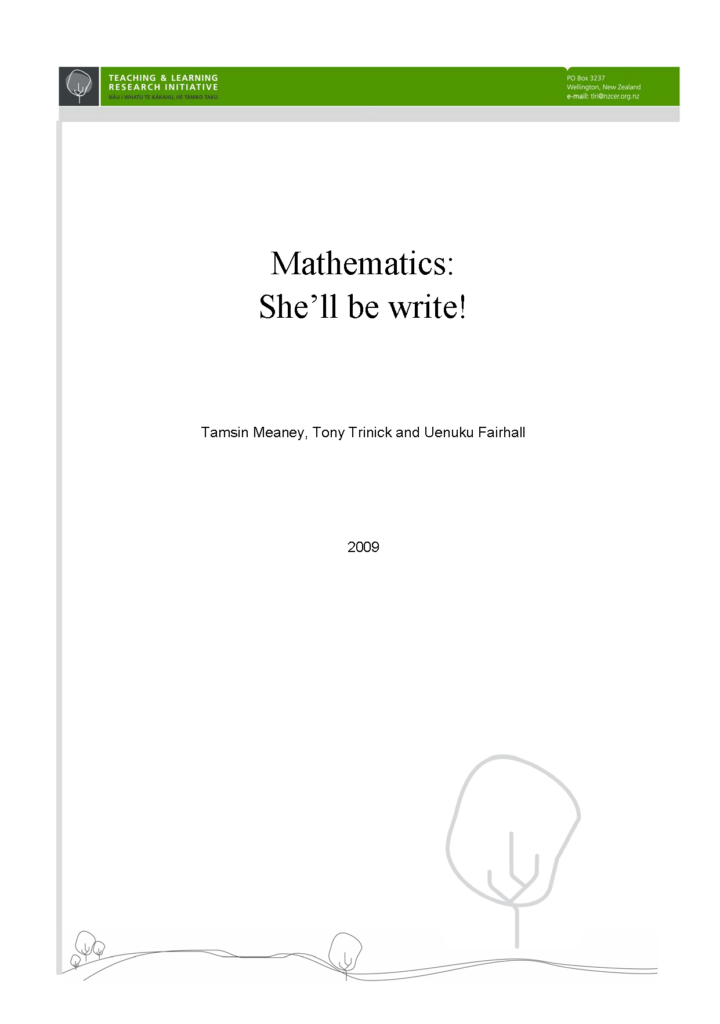
1. Introduction – Mathematics: She’ll be write! How students learn to speak, read, and write science and mathematics, and what is taking place in the classroom, laboratory, or informal learning context are critical areas for research. (Lerman, 2007, p. 756) The focus of this Teaching and Learning Research Initiative (TLRI) project was to discover effective […]
Porous learning: what do families and schools need to know and do about learning@home in a digital environment to enhance children’s literacy?
Introduction School students increasingly use digital technologies at home to enhance learning and bridge the school– home divide. The porous learning project was designed to explore the factors that both enabled learning and created barriers to learning at home for students in a low socioeconomic community using the digital learning environment, which we refer to […]
Copy, cut, and paste: How does this shape what we know?
Introduction Copy, cut, and paste are functions naturalised and embedded across different software applications but are poorly understood as tools that shape our engagement with knowledge, culture and society in the 21st century (Livingstone, Wijnen, Papaioannou, Costa, & Grandio, 2014). Most people develop proficiency with ubiquitous software packages, such as those on cell phones, informally […]
Move, Act, Play, Sing (MAPS): Exploring early childhood arts teaching and learning strategies and concepts through community arts interventions
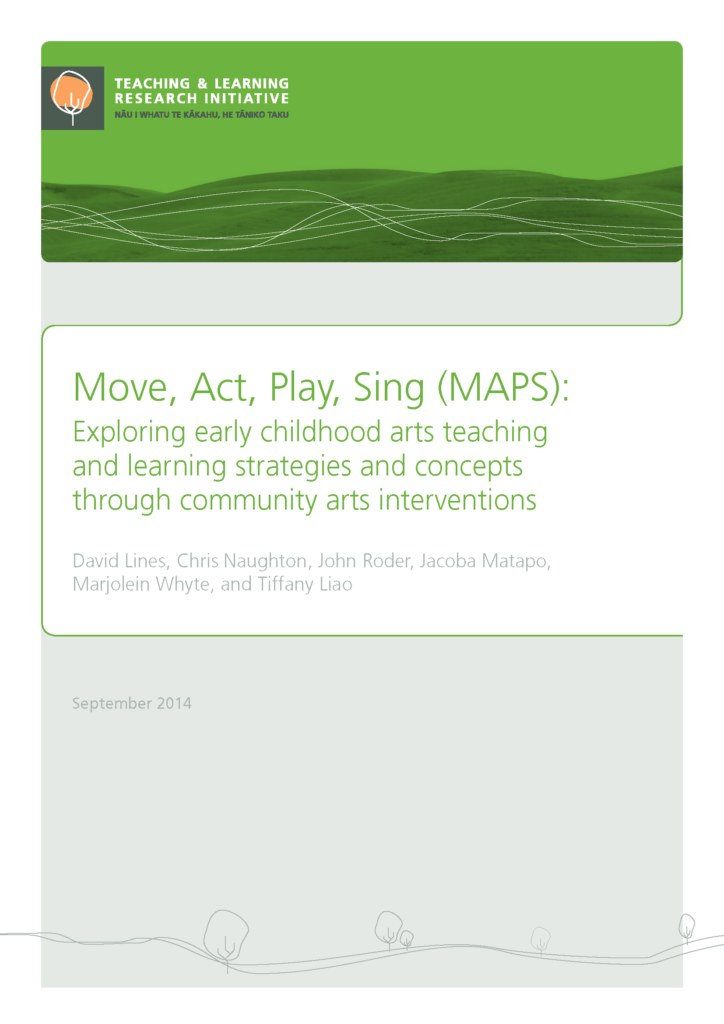
Introduction Move, Act, Play, Sing (MAPS) explored early childhood teaching and learning in the performing arts through community artist interventions and relational practices and pedagogies. The research developed three early childhood centre case studies where teachers, children, and parents worked together with community artists, the research team, and other colleagues to explore emergent pathways of […]
Extending innovative e-learning leadership
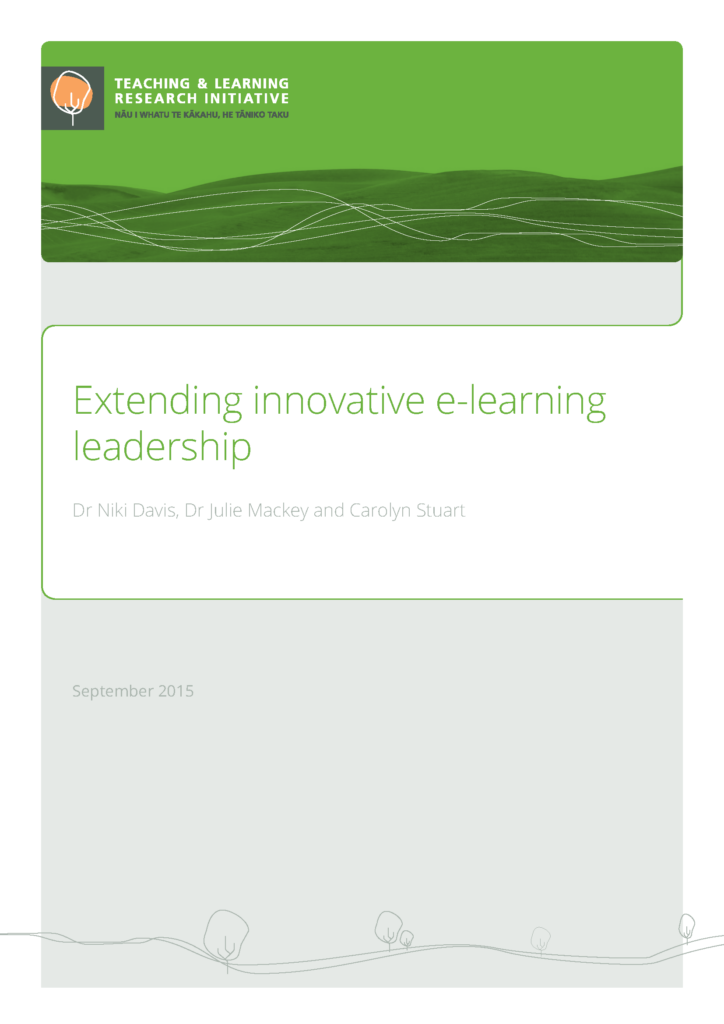
Introduction / research aims / rationale This project grew out of the desire to understand and share the strategies that successful school leaders use to identify, implement and integrate digital technologies in school settings. What may come naturally to some leaders presents significant challenges for others; the catalyst for this project was the opportunity to […]
Smoothing the path to transition
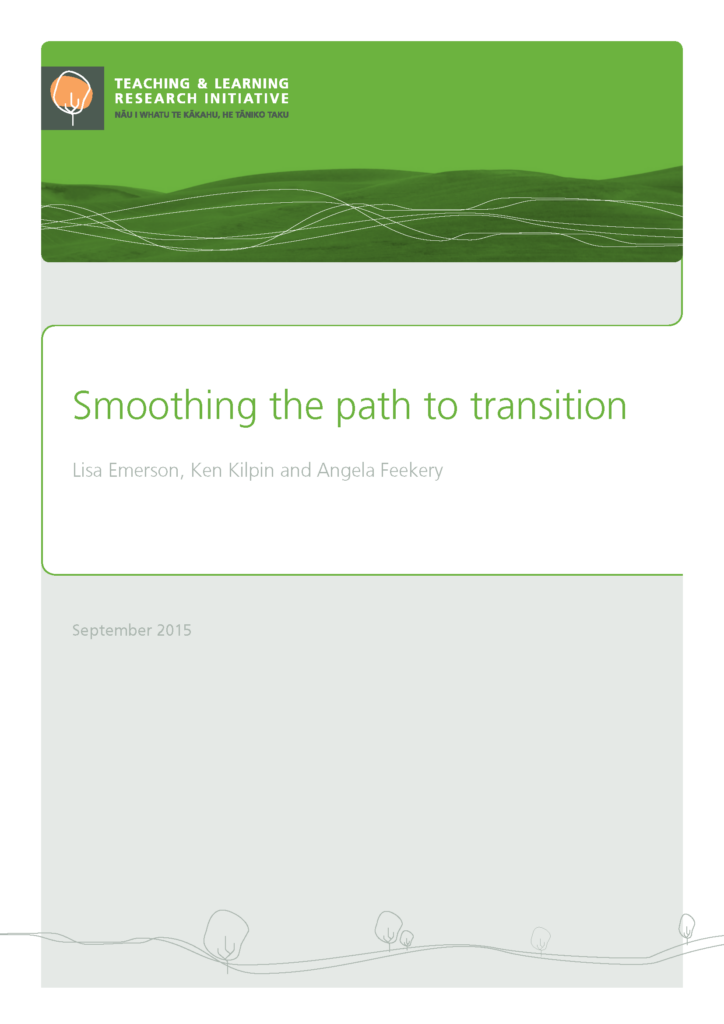
1. Introduction Successful transition of secondary school students into tertiary study is a priority for secondary schools, tertiary institutions and government alike (see, for example, Bazerman, 2007; Batholomae, 2005). The National Certificate of Educational Achievement (NCEA) has, as one of its goals, the effective preparation of senior secondary students for higher education; the Tertiary Education […]
Titiro Whakamuri, Hoki Whakamua. We are the future, the present and the past: Caring for self, others and the environment in early years’ teaching and learning
1. Aims, objectives and research questions Drawing from both kaupapa Māori and Western perspectives, this study has focused on global issues of ecological sustainability in a variety of local/national early childhood education contexts. It has aimed to contribute to an emerging body of research which illuminates, documents and integrates possibilities for early childhood education pedagogies […]
Designing knowledge building communities in secondary schools
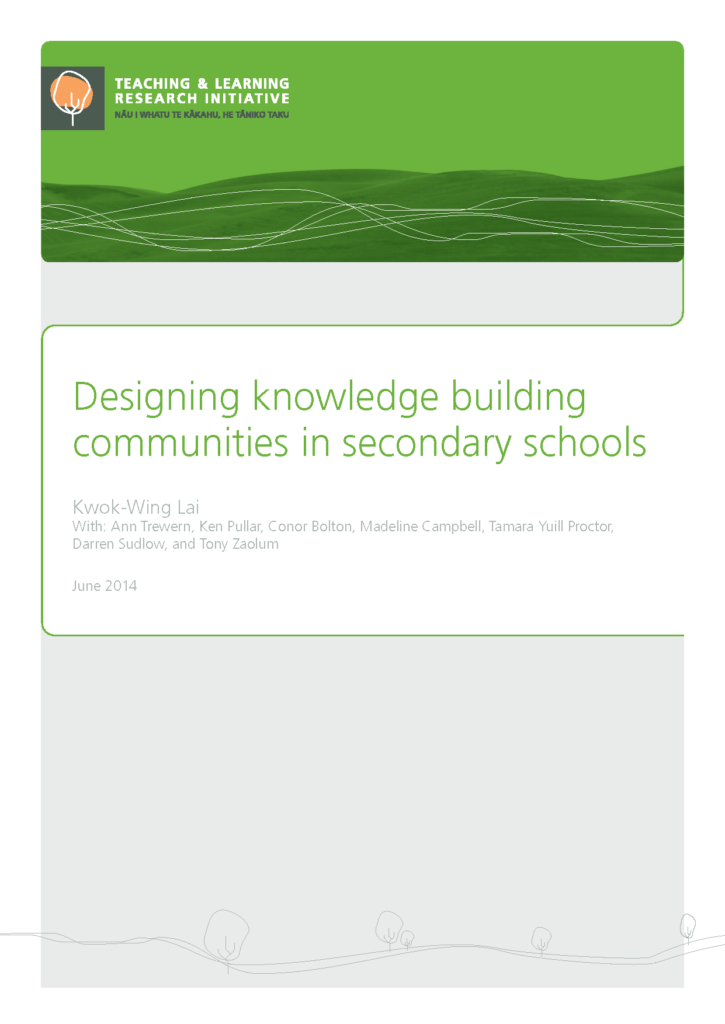
Introduction With the emergence of globalisation and the knowledge economy, it has become a priority for economically advanced countries to increase and democratise the innovative capacity of their citizens. In New Zealand, there is an urgent need to develop young people’s capacity to work creatively and innovatively with knowledge (Ministry of Education, 2007). This presents […]
Children as teachers: families as learners
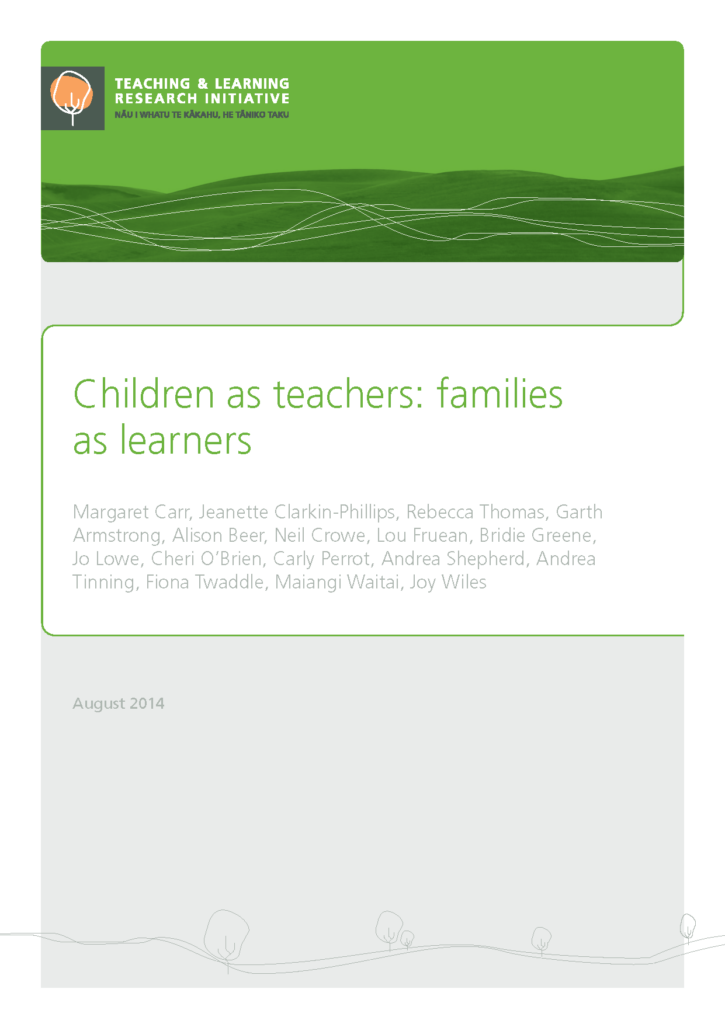
Introduction In this project, the research team—a collaboration between teacher researchers and university researchers— was interested in finding out about how children as teachers might engage their families as learners at a museum. This project had two parts. First, it was about young children as museum guides, explaining their understandings about a museum exhibit or […]
Moving a school: Higher order thinking through SOLO and e-Learning
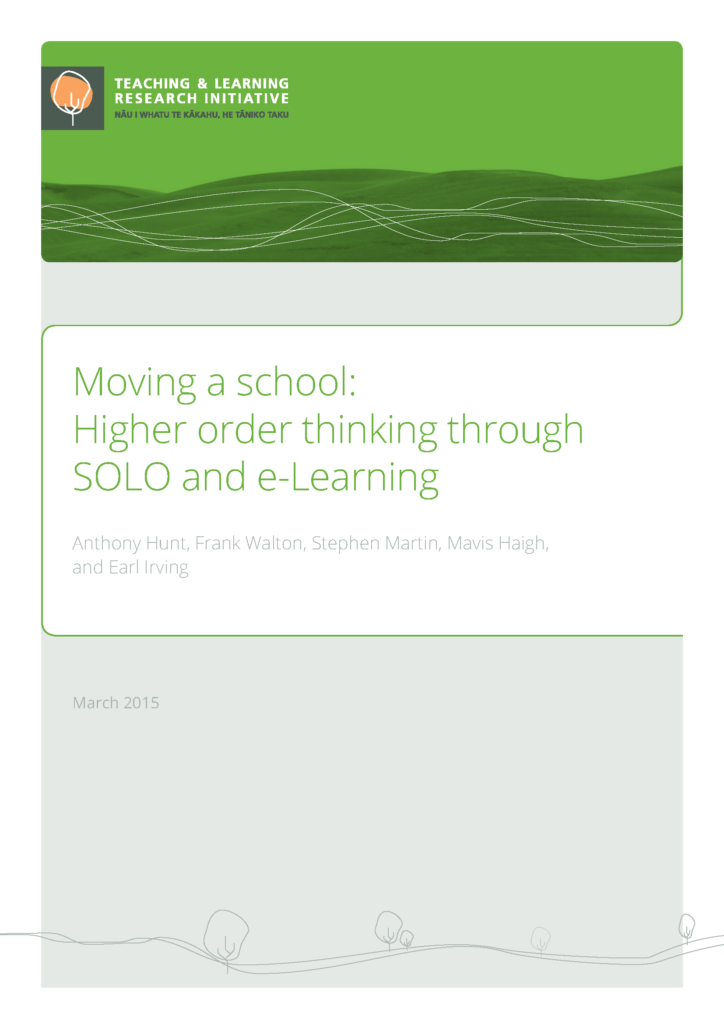
Introduction Technological, social and economic change is encouraging increasing emphasis on the development of higher order thinking skills throughout the world and they are being incorporated into national curriculum goals in many countries, including New Zealand. Simultaneously the use of digital technologies is being promoted by many educators and authorities in this country and elsewhere […]
Key competencies: How school guidance counsellors contribute to student learning
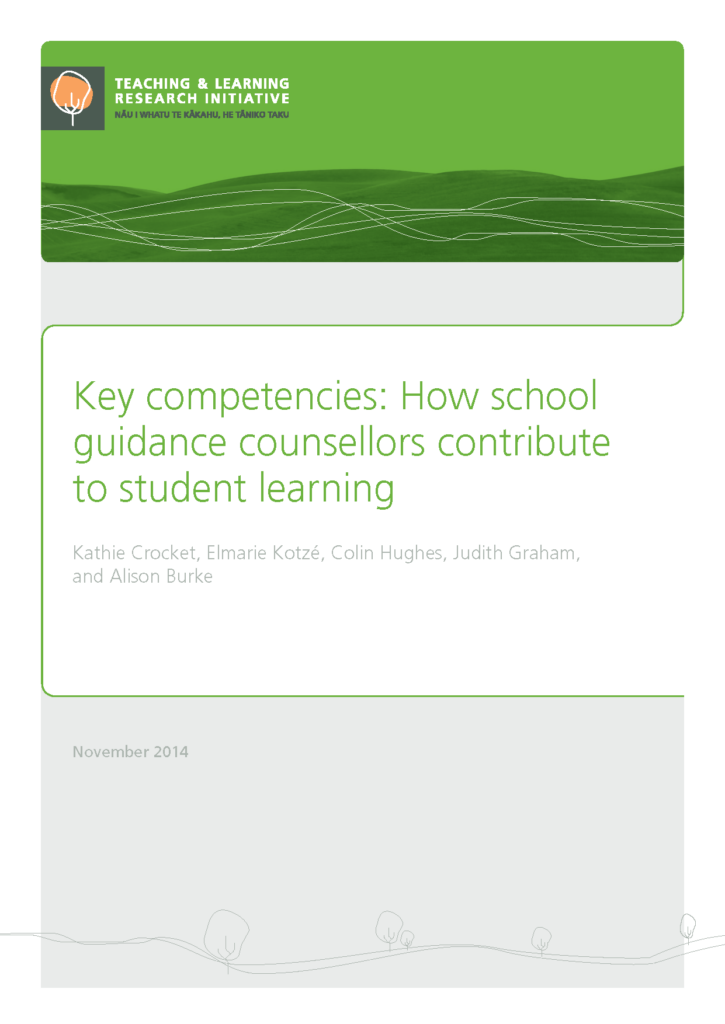
Introduction The project summarised in this report demonstrates how counsellors effectively facilitate learning in the course of attending to student wellbeing. students seek counselling to deal with problems, concerns, and struggles. In responding to student distress, school counsellors call on a repertoire of specialist therapeutic practices. many of these practices facilitate learning. This study shows […]
Threshold concepts: Impacts on teaching and learning at tertiary level
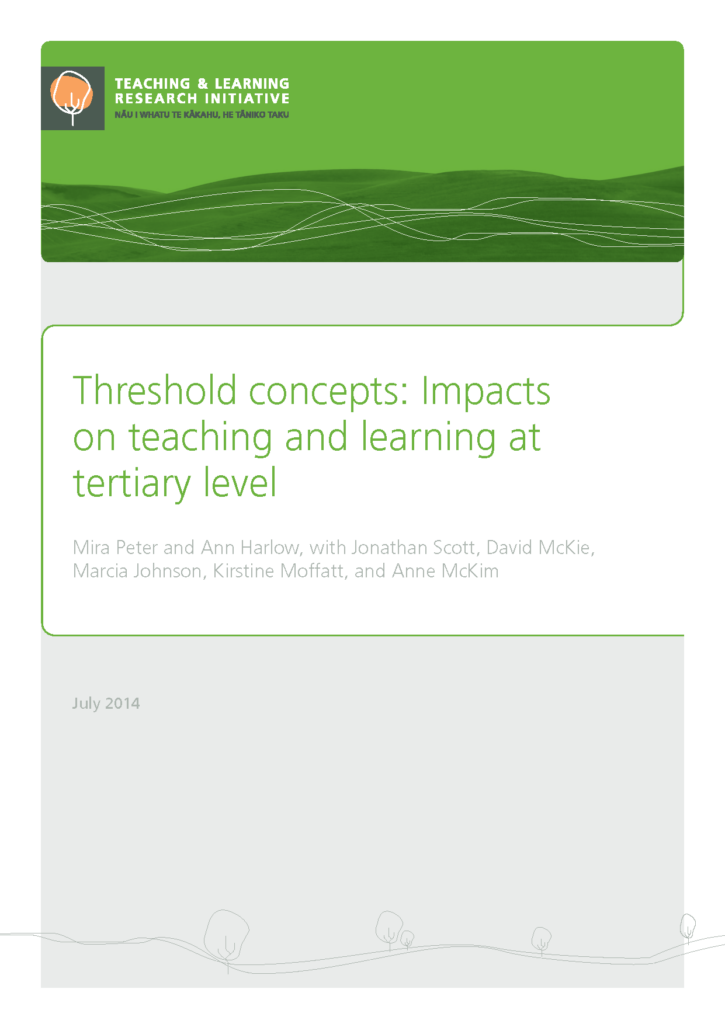
Introduction According to threshold concept theory, in each academic discipline there exists concepts that, once grasped, allow new and previously inaccessible ways of perceiving and thinking about the subject to emerge (Meyer & Land, 2003). According to Meyer and Land (2005, 2006) there are points in learning threshold concepts at which students experience difficulty because […]
Are they ready to teach? Assessing student teachers’ final practicum
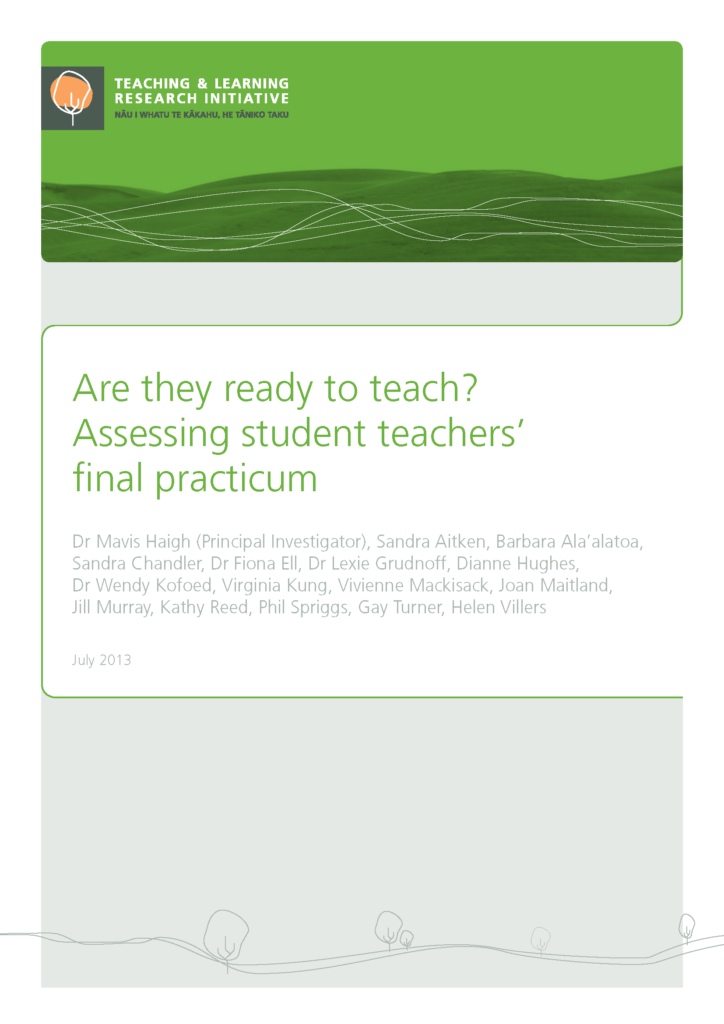
Introduction Although the practicum is generally accepted as a core element in teacher preparation programmes, the assessment of student teachers’ competence during practicums appears to be particularly problematic as making judgments about complex performances, such as teaching, is a sophisticated process. As with any form of assessment, judgments are made against some criterion or normative […]
Preparing initial primary and early childhood teacher education students to use assessment
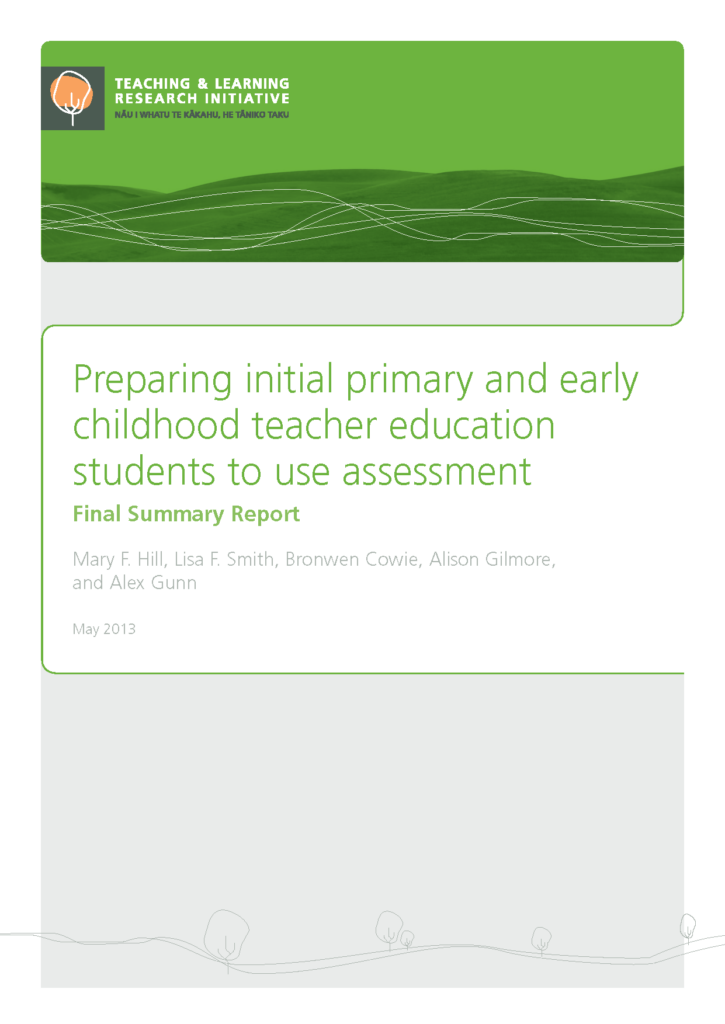
Introduction In our rapidly changing world, in which the future is uncertain, teachers need to prepare children with knowledge, skills, values, and competencies that will support them to become life-long learners and active contributors to New Zealand’s social, cultural, economic, and environmental well-being. Such an aim implies that children should be educated in ways that […]
Active adult participation in early childhood education: Enhancing child learning and community wellness
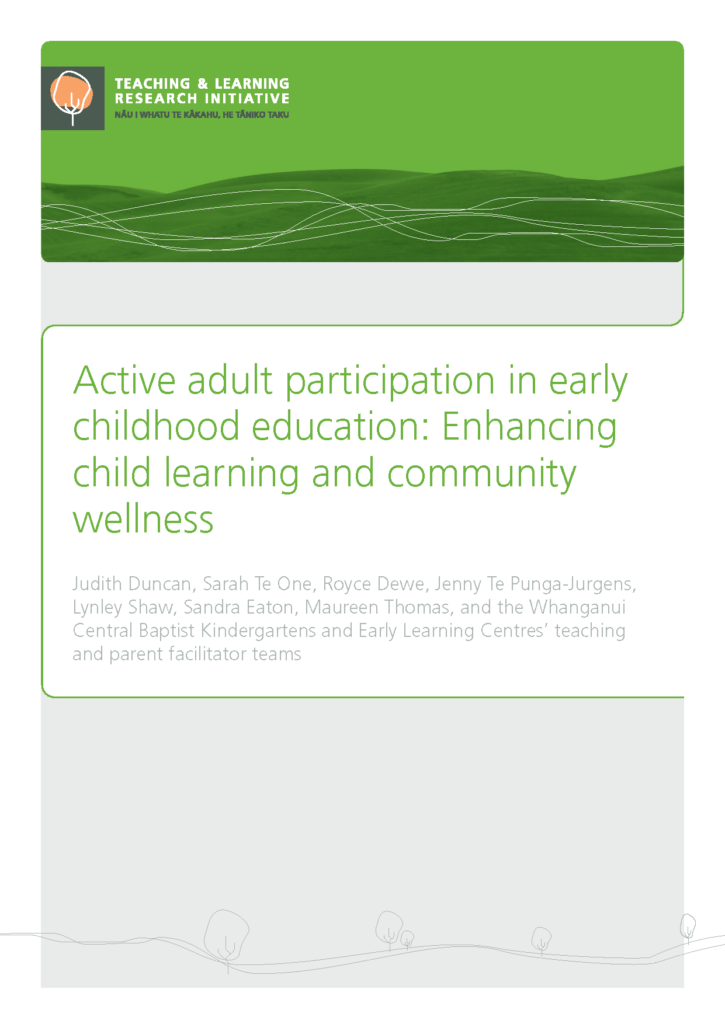
Introduction In our qualitative research project (2010–2012), the team investigated how “ordinary” early childhood centres enacted “extraordinary” pedagogy by including families, wider whānau and communities in the “everyday” of early childhood programmes; that is, within this project, we explored both theoretical constructs and teaching and organisational strategies to increase parent participation and positive learning outcomes […]
School is out: Students’ experiences of non-traditional learning
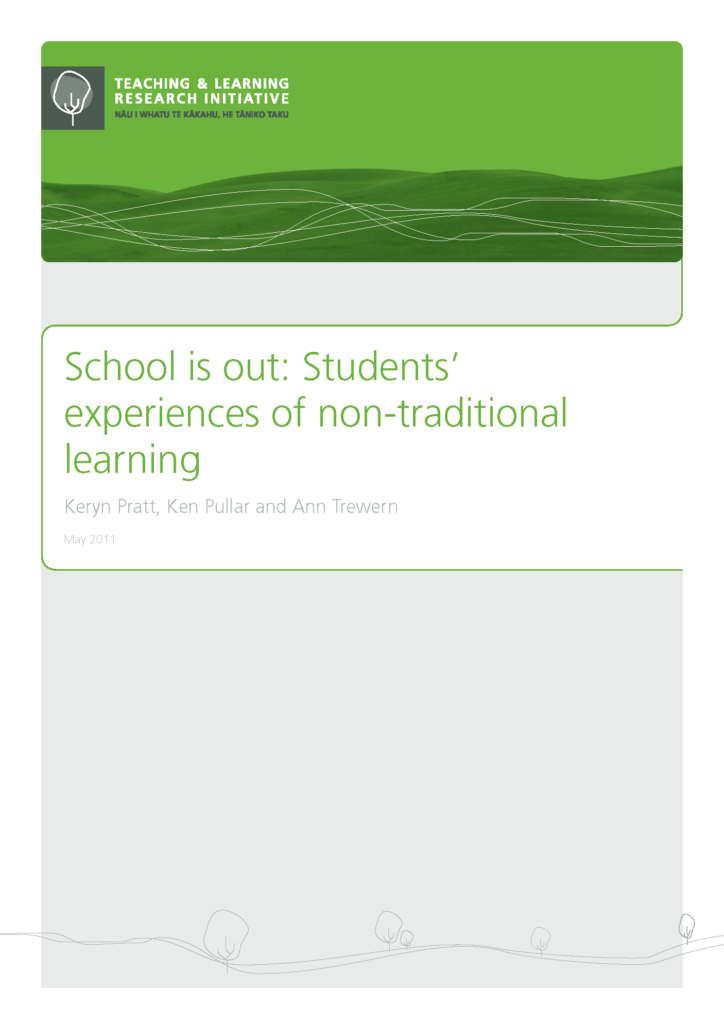
Introduction The experience of New Zealand school students is increasingly changing. In addition to their traditional schools students are participating in virtual classrooms and other forms of learning, such as classes through the correspondence School and vocational programmes. This study aims to extend previous research by looking at the experience of students in one regional […]
